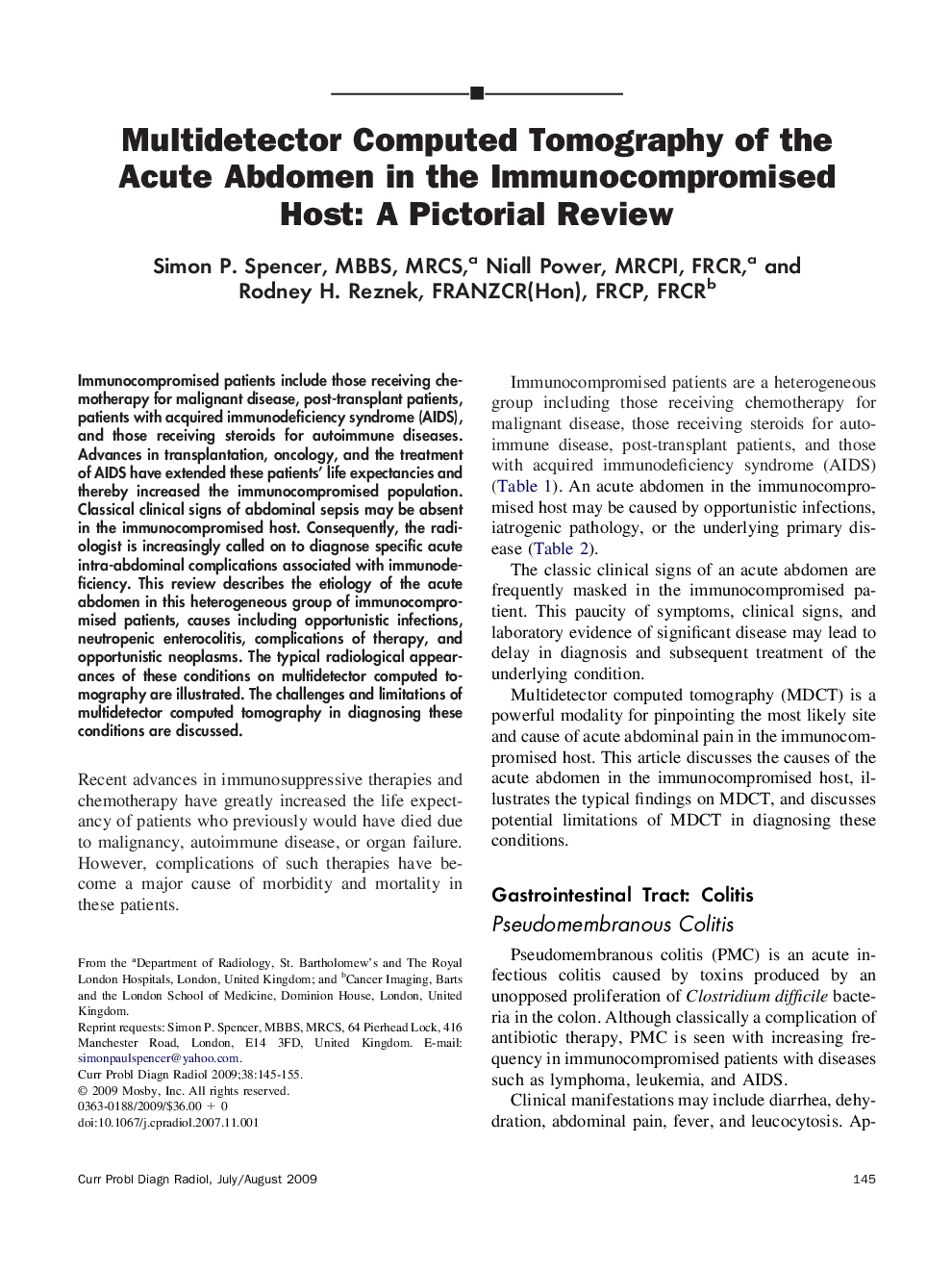| Article ID | Journal | Published Year | Pages | File Type |
|---|---|---|---|---|
| 4223812 | Current Problems in Diagnostic Radiology | 2009 | 11 Pages |
Immunocompromised patients include those receiving chemotherapy for malignant disease, post-transplant patients, patients with acquired immunodeficiency syndrome (AIDS), and those receiving steroids for autoimmune diseases. Advances in transplantation, oncology, and the treatment of AIDS have extended these patients' life expectancies and thereby increased the immunocompromised population. Classical clinical signs of abdominal sepsis may be absent in the immunocompromised host. Consequently, the radiologist is increasingly called on to diagnose specific acute intra-abdominal complications associated with immunodeficiency. This review describes the etiology of the acute abdomen in this heterogeneous group of immunocompromised patients, causes including opportunistic infections, neutropenic enterocolitis, complications of therapy, and opportunistic neoplasms. The typical radiological appearances of these conditions on multidetector computed tomography are illustrated. The challenges and limitations of multidetector computed tomography in diagnosing these conditions are discussed.
